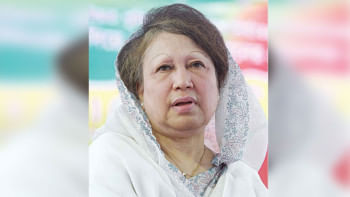Transition to Developing Country: Initiatives underway to cover potential losses
The government is cautious about addressing the challenges the country would face after its transition to a developing country in 2026.
This was reflected in the finance minister's budget speech in parliament on Thursday.
"We have already incorporated the necessary strategies for this purpose in the 8th Five Year Plan and a detailed action plan is being prepared by the Economic Relations Division," said Finance Minister AHM Mustafa Kamal.
Economists said the minister's statement regarding initiatives to deal with the challenges showed the seriousness of the government's intent to address the issue.
They, however, suggested timely implementation of the work plan.
Kamal in his budget speech said the government has already taken steps to avail the advantage of GSP+ in European Union countries after the graduation.
As part of its initiatives, Bangladesh has signed a preferential trade agreement with Bhutan and is working to ink similar agreements with 11 other countries, he added.
Although the minister talked about multiple initiatives to overcome the post-graduation challenges, he did not give any indication about the government's steps regarding removing corruption.
He said the government was working on improving Bangladesh's position in the Ease of Doing Business Index to increase foreign direct investment into the country.
Kamal said the government was implementing various mega projects, including Padma Bridge, which would help create new jobs and increase national income.
The Committee for Development Policy (CDP) of the United Nations recommended taking Bangladesh out from the list of the least-developed countries (LDCs) in 2026. Bangladesh, before the advent of Covid-19, was set to exit the group in 2024.
In the 2021 review of CDP, Bangladesh stands strongly in all three criteria for the graduation, with a per capita income of $1,827 (requirement $1,222), Economic Vulnerability Index of 27 (requirement 32 or below), and human Asset Index of 75.4 (requirement 66 or above).
According to a government study conducted last year, Bangladesh's export earnings and the flow of cheaper foreign assistance and grants will decrease after the graduation from LDC status.
The projected loss of exports and grants and higher debt service costs would lead to higher current account deficit, said the study styled "Impact assessment and coping up strategies of graduation from LDC status for Bangladesh".
The report was prepared by the General Economics Division, a wing under the planning ministry.
The biggest blow will emerge in the form of the losing duty-free market access. The projected export loss from garment products in the European Union and non-EU markets is estimated to be about 5 percent of the total exports in 2017-18 fiscal year, the study said.
This loss is estimated to be $7 billion in FY27, which would steadily increase to $13 billion by FY31.
Policy actions will be necessary to counter these projected losses, the study said, adding that the loss of concessional loans will lead to increased debt servicing costs.
The report, however, said the LDC graduation will open up the door for market-based borrowing by both the public and private sectors. Bangladesh will become more dependent on borrowing from relatively higher-cost sources. The private sector external debt will also see an increase.
The third important factor will be the loss of foreign grants, currently received by the public and private sectors.
The combined impact of these three types of losses will directly affect the balance of payment, and the current account deficit may swell to 0.9-1.4 percent of GDP in FY27.
Fahmida Khatun, executive director of Centre for Policy Dialogue, said there should be a guideline for facing post-graduation challenges in 2026 as the export, soft loan, and trade benefit will decline.
"If the government take sudden decisions in 2027, it would not be wise. So, we should prepare from now to overcome the challenges," she said.
Fahmida said domestic resource mobilisation would be very important after the graduation and proper guidelines should be prepared in this regard.
Ahsan H Mansur, executive director of Policy Research Institute, said policy issue is important as the country is going to graduate out of LDC status after 2026.
He stressed the need for planning on internal resources mobilisation.

 For all latest news, follow The Daily Star's Google News channel.
For all latest news, follow The Daily Star's Google News channel. 



Comments